Is conscious living something you talk about or something you do?
We often talk about awakening as if it were something that happens in meditation or through spiritual study. But real awakening begins much closer to home in our kitchens, wardrobes, shopping baskets, and everyday habits. Conscious living is not just about raising your vibration; it’s about raising your awareness of how you move through the world that sustains you.
If we are spiritual beings having a human experience, then this planet — our beloved Gaia — is not just scenery. She is a living, breathing presence. The ground beneath your feet is alive. Every gust of wind, every drop of water, every creature and mineral form part of an intricate, intelligent web of life. And she feels how we treat her.
So how do we live consciously in a way that honours the Earth and ourselves? It begins by remembering that every action carries energy, and being mindful of that energy, our intentions and our level of care.
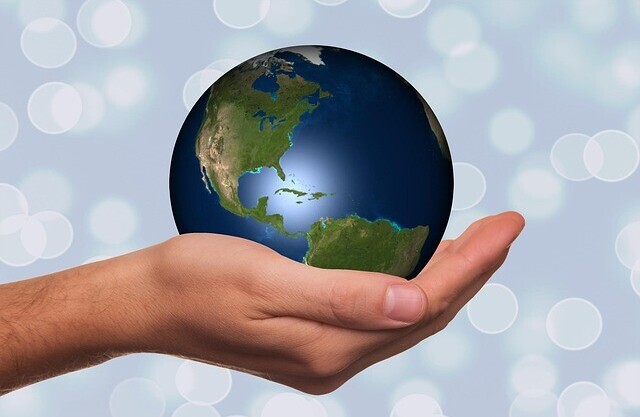
From Spiritual Awareness to Planetary Awareness
There is a tendency in the spiritual world to talk about ascension and to dream of leaving this difficult 3D space to return home. We look up rather than around. But true spiritual growth also asks us to root down. We cannot rise if we forget where we come from. The cells in our bodies are made of the same minerals that form mountains. The oxygen we breathe comes from plants and oceans that give freely every moment of the day. And ultimately, we chose to come here to this dense, difficult place for a reason – because it was a dense and difficult place!
The Earth is a living being as we are, but from our human perspective, we cannot always see this.
The late scientist James Lovelock called this the Gaia Hypothesis, which is the idea that Earth is a self-regulating, living organism. Many indigenous traditions have known this for thousands of years. To them, mountains are elders, rivers are teachers, and fire is transformation embodied.
Conscious living is simply remembering this truth because we are not separate from nature but expressions of it. When we waste, pollute, or exploit, we are quite literally wounding ourselves. When we nurture, protect, and give thanks, we heal collectively.
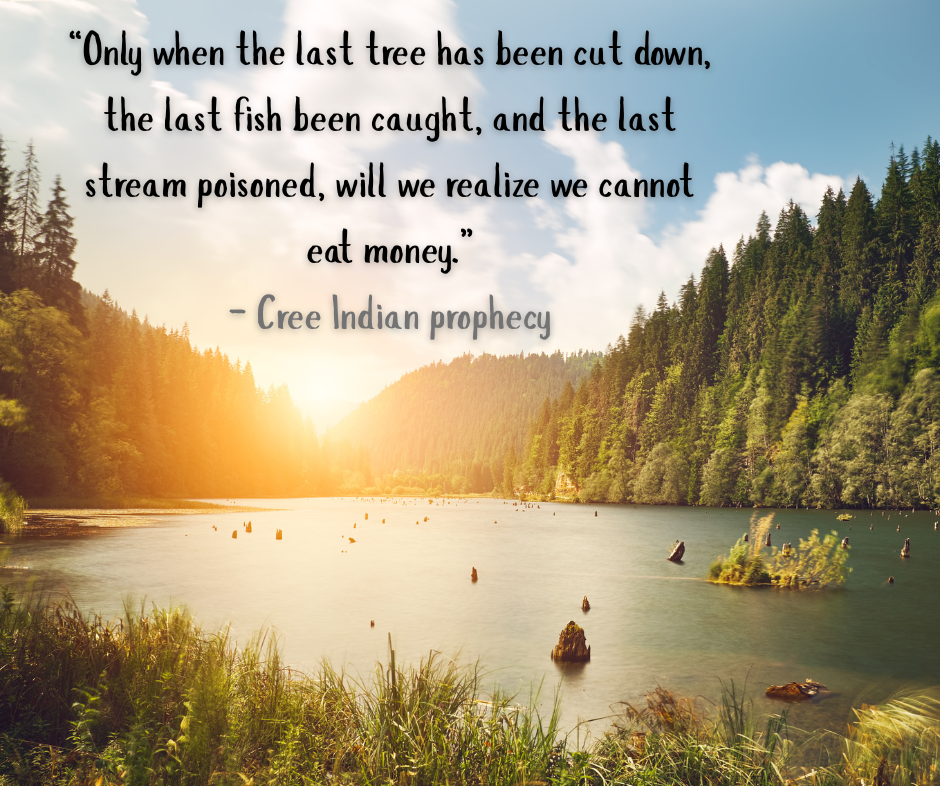
The Culture of Convenience: How We Lost the Art of Care
We live in a throwaway culture where speed and convenience have replaced care and reverence. It’s easier to click ‘buy now’ than to fix, share, or repair. The result is a staggering amount of waste: according to WRAP (2024), UK households throw away around 4.7 million tonnes of edible food each year, enough to fill 90 Royal Albert Halls.
The same unconsciousness seeps into fast fashion, plastic packaging, and energy use. Every year, millions of tonnes of textiles end up in landfill while resources are stripped from the Earth to make new ones.
But awareness isn’t about guilt; it’s about remembering to love. The opposite of waste is gratitude. Each time you pause to appreciate what you already have, you can interrupt the cycle of overconsumption. Conscious living begins the moment you stop asking “What more can I get?” and start asking “How can I care for what I already have and what already is?”
Conscious Consumption: Every Purchase Can Show Love
We exist in a community, be that our local village, town, country or continent. Within that community, we can trade with one another, share and experience what other communities have to offer. We can participate in those interactions consciously or unconsciously.
For example, every pound we spend is a message to the universe about the kind of world we wish to live in. Are we giving our energy (money) to things that will sustain us and bring comfort to ourselves and others, or are we exploiting others for the benefit of ourselves?
How often do you think about that?
Conscious consumption doesn’t mean giving up joy. It means finding joy in the choices we make and making choices that feel aligned with our values.
Before buying, try asking:
- Who made this, and were they treated fairly?
- What is this made from, and how was it sourced?
- Do I really need it, or am I trying to fill an emotional gap?
Supporting small businesses, second-hand stores, or sustainable brands creates a ripple effect of positive energy. Reusing jars, upcycling old furniture, or swapping clothes with friends can be creative and fun. Repairing things, whether it’s a jumper, a kettle, or even a relationship, reconnects us with care.
Let’s look at a few ways that we can start to live a little more consciously.
“Every time we repair, reuse, or re-love something, we whisper a ‘thank you’ to the planet.”
Energy Awareness: Respecting the Life Force
The same life force that runs through you also powers your home. We often forget that electricity, heat, and water are sacred forms of energy. Each comes from the Earth’s resources, transformed through human effort and invention into heat and light.
Becoming energy-conscious doesn’t mean living in darkness or discomfort, or struggling with a candle and an outside loo! However, it is about using energy wisely and respectfully, and there are things that we can all do better when it comes to energy management:
- Turn off appliances at the wall and unplug chargers when not in use
- Choose renewable energy tariffs where possible
- Wash clothes in full loads at lower temperatures and air-dry them when you can
- Take “energy fasts” where you enjoy an evening without screens, lights, or devices, letting yourself reconnect to the stillness that surrounds us
Even small changes add up. If every UK household switched off unused lights, we could save the equivalent of powering 300,000 homes each year (Energy Saving Trust, 2024).
You might like to try a 24-hour conscious energy challenge: spend one day noticing every switch, tap, and plug. Each time you use power, offer a silent thank you to the Earth. You will become much more conscious of your energy use, and saying thank you will increase your awareness of gratitude and abundance.
Food: Eating With the Earth in Mind
Food connects us directly with the planet’s abundance. Yet many of us eat without thought, rushing meals or letting food spoil unseen in the fridge. Now I’m not claiming to be perfect here, but this is one of the things I am trying to instil into my children, so that they are aware of the amount of food they waste.
I am also trying to grow much more of my own food and this year I’ve grown potatoes, carrots, peppers, sweetcorn, onions, beans and peas. I can’t say they would feed us for more than a week or two, but it’s a start. And I’ve definitely learned a lot more about how to grow them over the year, so next year will hopefully be better. Here’s a selection of some of the homegrown food we have enjoyed this year.

Now, not everyone has a garden, but conscious eating starts with curiosity — where did this come from? Who grew it?
When you eat seasonally and locally, you align with nature’s rhythm. Composting, using leftovers, and cooking creatively reduce waste and reconnect you to the cycle of giving and receiving.
Before a meal, pause and give thanks. Saying grace may feel like an outdated thing, but gratitude changes the vibration of food and our relationship to it. As the saying goes: “When you eat with awareness, the act of nourishment becomes sacred.”
Reducing food waste also makes good economic sense, too. According to Love Food Hate Waste, the average UK family could save over £700 a year simply by using up what they buy. Conscious eating nourishes not only your body but also the planet.
Now, anyone who knows me knows that I am not the best cook (and that’s an understatement!) although I do love eating! However, I do try to use up leftovers wherever possible, and I’m learning (slowly) to bake and be more creative with food. My youngest daughter is much better at cooking than I am, and I think that’s great. I will renovate the shed, and she will cook dinner! Win-win!
The Joy of Enough
Consumer culture tells us that happiness lies in having more, and we are constantly bombarded with adverts to persuade us to buy more things, gain more status, and never be satisfied with what we currently have. Yet spiritual truth tells us the opposite: true joy grows in simplicity, not in satiation. Often, the more we simplify our lives, the more space we create for peace and ultimately, the happier we feel.
Now I’m not advocating we all live in a tent in a field, although that does have its benefits. I’m suggesting that we try to think more about the things we do have, rather than the things we don’t. Look around you, really look around and see the wonderful things that you have created. I’ll bet you are warm, safe, and have some personal space and time to enjoy it. Have you said ‘thank you’ for that?
Try slowing down for a short time. Grow herbs on a windowsill. Walk instead of driving. Choose experiences over possessions. Savour what you already own. The energy of enough is powerful; it shifts us from scarcity to contentment.
As we simplify, our vibration naturally rises. Gratitude magnetises abundance, not from buying more, but from being more. And paradoxically, that often brings us more of the things we want anyway.
Remember, we do not attract what we want – we attract what we are!
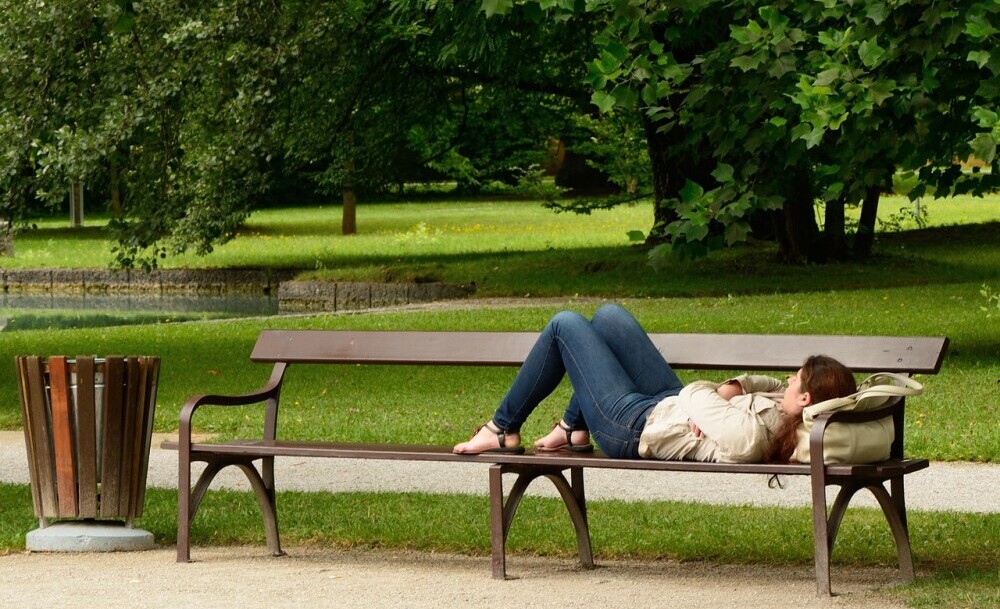
Conscious Living in Action: Three Days to Inspire Change
October offers several awareness days that reflect the heart of conscious living. Each invites us to reconnect with Gaia through small, tangible acts of care and responsibility.
International E-Waste Day – 14 October
Technology connects us, but it also consumes enormous natural resources. Old phones, chargers, and laptops contain precious metals mined from the Earth. Most of which can be recycled if they end up in the right place, not landfill!
- Take this day to gather unused electronics and recycle them responsibly through your local council or retailer
- Consider repairing or refurbishing older devices instead of replacing them
- Clear digital clutter; unsubscribe, delete, and declutter online spaces as an act of energetic cleansing
Mindful tech use isn’t about rejection, it’s about respect. The energy we save externally mirrors the calm we create internally
National Reuse Day (UK) – 18 October
Created by Freegle, this day celebrates reusing and sharing rather than discarding. This is one I love!
- Try swapping clothes with friends, giving away items through Freegle or local community groups, or transforming old jars into planters or storage
- Reuse is gratitude in action — a way of saying, “I value what already exists”
- Share your creativity online to inspire others to join the movement – I’m currently updating my old wooden cabin, which had lots of holes and broken windows. I’ve steadily repaired the holes, mended the windows and insulated the interior. It’s a work in progress, but I’m loving it
Sustainability Day – 29 October
Held on the last Wednesday of October, Sustainability Day invites reflection on how we use the Earth’s resources.
- Spend a few minutes journaling: What does sustainable living mean for me?
- Choose one habit to change, maybe reduce plastic, walk more, or cut energy use
- Treat it as a moment of reconnection, not obligation
Conscious living isn’t about being perfect. It’s about becoming present, again and again, in every precious moment
Living in Partnership With Gaia
When you start to live consciously, you begin to feel the Earth’s aliveness everywhere. You start to notice the leaves changing colours on the trees, the flowers that are still in bloom, the phases of the Moon. You can enjoy the pulse of waves, the hum of bees, the quiet intelligence of trees. Gaia is not separate from you. She is breathing when you breathe, learning when you learn, expressing herself when you do. She is evolving with you and through you.
Why not try forming a more conscious and personal relationship with her?
- Speak words of thanks when you step outside
- Notice the beauty surrounding you – the clouds, the sky, the rain
- Place your hand on a tree and feel its wisdom
- Offer a small daily act of care, such as picking up litter, watering plants, feeding the birds or wildlife
These gestures, though simple, are prayers in motion.

Conscious living isn’t about deprivation; it’s about decisions and devotion. It’s remembering that your life is woven into the fabric of a living planet, and that spirituality and sustainability are one and the same.
Each mindful choice: every light switched off, every apple eaten with gratitude, every jumper repaired is a way of saying I remember and thank you.
Gaia never asks for perfection. Everything is already perfect. But she is asking for partnership. She asks us to live lightly, love deeply, and walk gently upon her sacred ground.
References:
- WRAP (2024). Food waste in UK households. www.wrap.org.uk
- Energy Saving Trust (2024). Energy consumption statistics. www.energysavingtrust.org.uk
- Love Food Hate Waste (2024). Reducing food waste at home. www.lovefoodhatewaste.com
- Freegle (2024). National Reuse Day Campaign. www.ilovefreegle.org
Related Posts
How to live more consciously – important things I now know
How to save money – top 10 tips
How to look after wildlife in winter

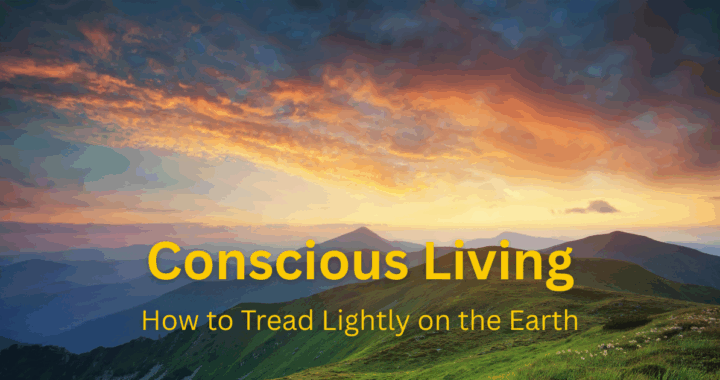
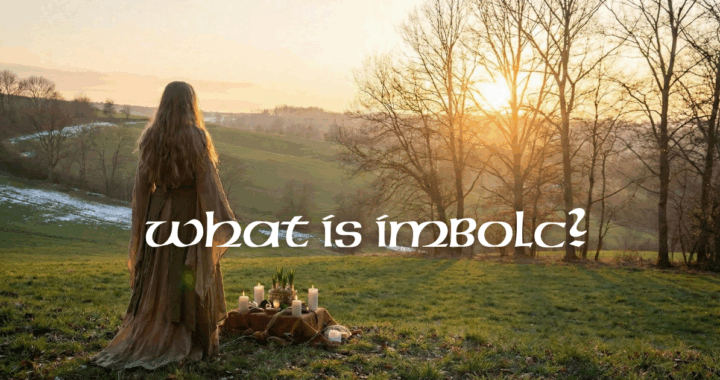
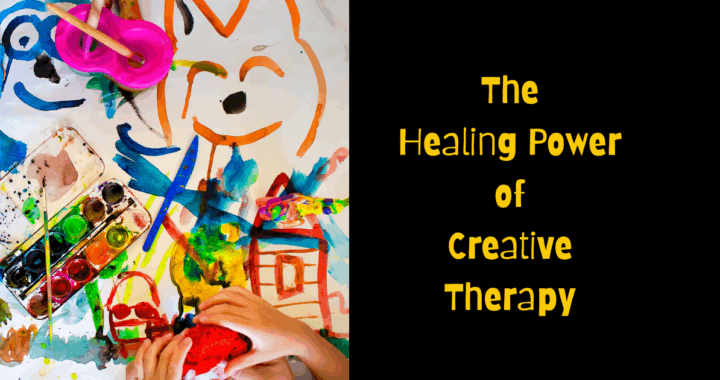

Beautifully written, Gail. As a follower of Jesus, this really spoke to me. I’m reminded of Genesis 2:15 — “The Lord God took the man and put him in the Garden of Eden to work it and take care of it.” God gave us the incredible responsibility to be caretakers of His creation, not consumers of it.
I love how you tied awareness and gratitude together because true stewardship begins with thankfulness. When we slow down, appreciate what He’s given us, and live with intention, we not only honor the Earth — we honor the Creator Himself.
Thank you for the gentle reminder that living consciously isn’t just a lifestyle choice — it’s an act of worship.
Hi Jason. Lovely to see you again and I’m so pleased that you found the article uplifting. I totally agree with you here that we are custodians and we have a duty to all creation to honour it and look after it. After all, we are one and part of the whole. Why wouldn’t we?
Wishing you a great day. Gail
This was a beautiful piece, Gail. I felt peace just reading it. The way you tie spirituality to simple daily actions really touched me. You’re right, conscious living isn’t something far away or mystical. It’s right here, in the small choices we make every day.
Your line about awakening starting “in our kitchens, wardrobes, and shopping baskets” stayed with me. It’s so true. That’s where our real awareness is tested, not in theory but in action.
I’ve been trying to live more consciously too. Growing a few plants, eating what I have before buying more, even pausing before throwing things away. It changes how you see life. Gratitude really does turn ordinary moments into something sacred.
I wonder, do you see digital mindfulness as part of conscious living too? Like clearing inboxes, limiting screen time, or being more present online? It feels connected somehow; learning to live lighter in both the physical and digital worlds.
John
Hi John. Thanks for your kind comments here and I’m pleased that you liked the article and were able to take something away from it. I find gratitude such a wonderful thing and I honestly do find myself saying ‘thank you’ to the universe for lots of things throughout the day. It does bring peace and it also reminds us of the amazing things we have.
My answer to your question is yes too. I think that the digital world is wonderful and I obvioulsy use it otherwise you wouldn’t be reading this. But I also like to switch off, go for a walk or spend time on the swing seat in my garden, just listening to the birds. I know that sounds a bit cliched and simple, but I really do get a lot out of it – when the acorns aren’t falling on my head. LOL. I’ve just spent the afternoon collecing in the last of my harvest and my daughter did cook – it was lovely. Simple things mean a lot and I appreciate them now. There was a time when I was rushing around, stressed up to the eye balls, making myself ill and miserable. But nothing on Earth would induce me to return to that no I have found the alternative.
I wish you all the best. Happy conscious living – it’s the only way.
This is really an eye opener of an article. We often don’t think about how our seemingly small actions can harm our planet in the long run.
If we all had to think consciously about little ways in which we could make a difference in our homes and in our communities, it would go a long way towards helping our earth regenerate itself faster. Even thinking about what you are buying and throwing away makes a huge difference.
Even a cell phone is something that we seem to go through with no regard for what happens to the old ones when we throw them away. These to not disintegrate quickly and can fill up our land fills quickly. Recycling is one of the wonderful ways in which we can help save our planet earth.
Hi Michel – great to see you again and thanks for taking the time to comment. Glad you found something interesting in the article. You have hit the nail on the head when you say that small actions can cause harm in the long run, and I think this is true of most things we do. If we are careless with our words, short-tempered with our family or just too stressed, these things have a major impact on us. Then we start forgetting to recycle, buy comfort food to help our mood and we end in a spiral downwards.
The key is being more aware of everything we do. When we bring awareness into all our actions, we can start to respond rather than react, and then we have a chance to change. And Gaia will be very appreciative, I’m sure.